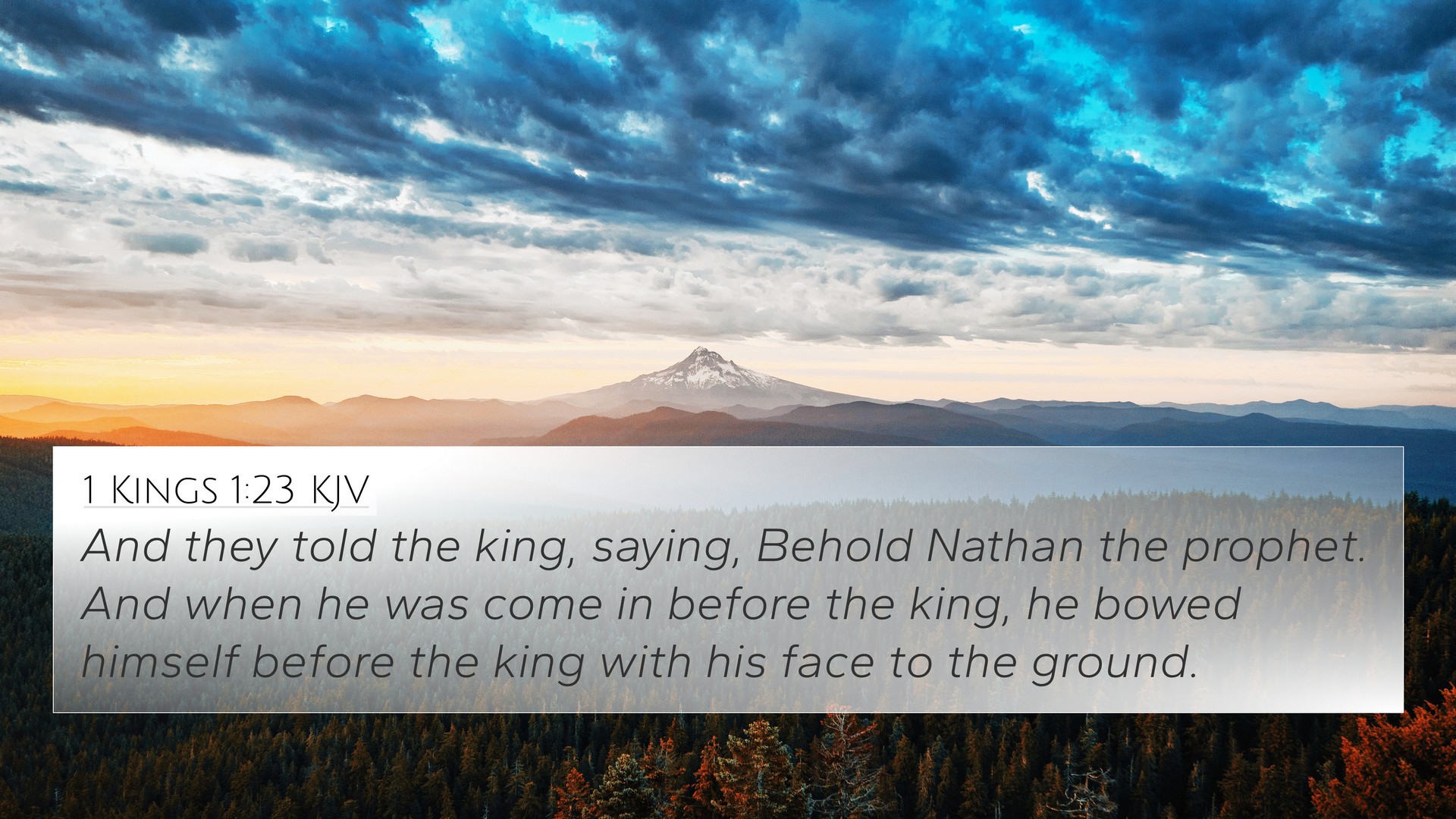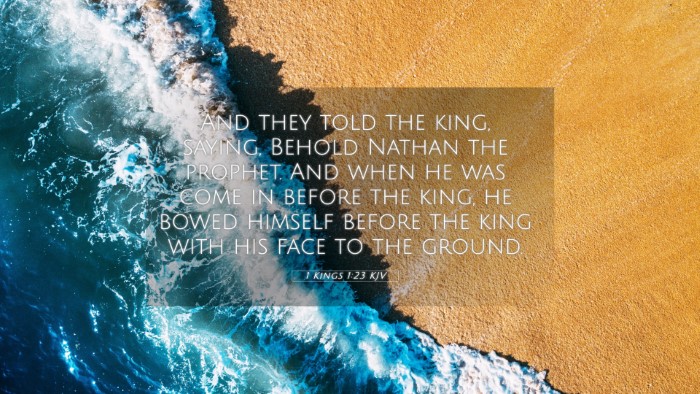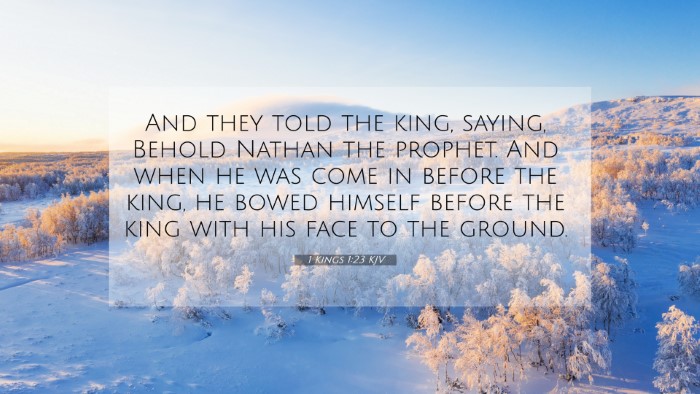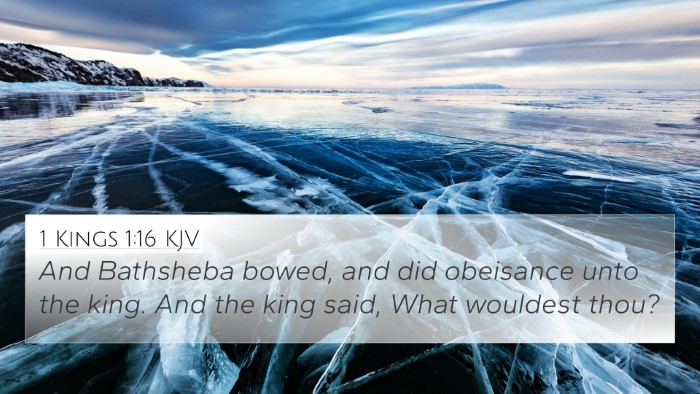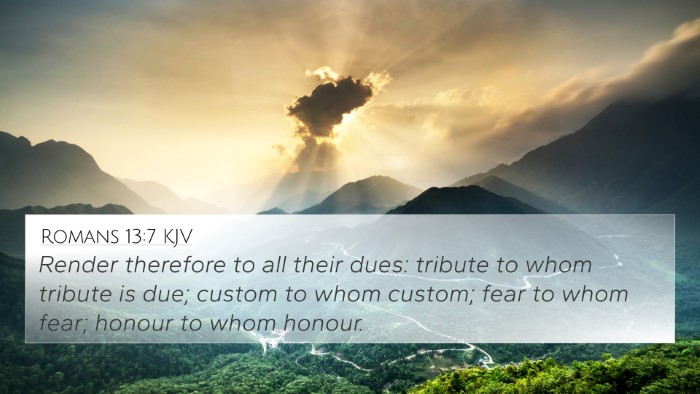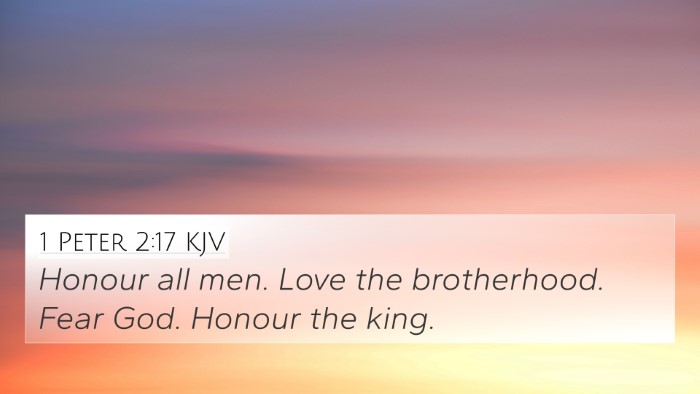Understanding 1 Kings 1:23
Verse: 1 Kings 1:23 - "They told the king, saying, Behold, Nathan the prophet and Bathsheba the mother of Solomon are there."
Meaning and Interpretation
This verse takes place during the later years of King David's reign, a crucial period marked by political intrigue and power struggles. In this context, Nathan the prophet and Bathsheba, Solomon's mother, approach King David to ensure Solomon's position as heir to the throne amid competing claims from Adonijah.
Commentary Insights
Several public domain commentaries provide in-depth analysis of this scripture:
-
Matthew Henry:
Henry emphasizes the significance of Nathan’s and Bathsheba's presence before David. They embody the crucial support for Solomon's claim and reflect the urgent need for proactive leadership to ensure that the throne would not fall into the hands of Adonijah, who sought to usurp it.
-
Albert Barnes:
Barnes highlights the role of divine providence in this scenario. By mentioning Nathan, a key prophet, and Bathsheba, the focus is on the fulfillment of God's promise that Solomon would inherit the kingdom. Their coming to the king represents an appeal to divine authority to thwart Adonijah's plans.
-
Adam Clarke:
Clarke discusses the socio-political dynamics at play, noting how external influences significantly impact internal royal matters. He points out how Nathan and Bathsheba's actions reflect wisdom and foresight in a volatile environment.
Key Themes in 1 Kings 1:23
- Political Intrigue: The verse reflects the turmoil within King David's court.
- Motherhood and Advocacy: Bathsheba's role illustrates a mother’s advocacy for her son, showcasing the protective instincts of motherhood.
- The Role of Prophecy: Nathan’s presence emphasizes the prophetic endorsement of God's chosen ruler.
- Divine Appointment: The unfolding events demonstrate the idea of God orchestrating leadership transitions.
Cross References
This verse connects to several other scripture passages, emphasizing its thematic significance:
- 1 Kings 2:4: Highlights God's promise to establish Solomon's reign.
- 2 Samuel 7:12-13: God's covenant with David regarding his lineage and successors.
- 1 Chronicles 22:9-10: David’s preparation for Solomon to build the temple.
- Proverbs 29:2: The connection between a righteous ruler and the joy of the people.
- 1 Kings 1:11-15: The plot of Adonijah reveals the competing claims for David's throne.
- Luke 1:32-33: Refers to the eternal kingdom, drawing a line to Christ's lineage and promises.
- Matthew 1:6: Genealogy of Jesus linking to David and Solomon, emphasizing the fulfillment of God’s promises.
Conclusion
1 Kings 1:23 serves as a pivotal verse in understanding the succession of leadership in ancient Israel, illustrating the intersection of divine will, prophetic advocacy, and maternal determination. As we analyze this scripture, we delve into the broader thematic elements throughout the Bible, illustrating the interconnectedness of Biblical texts and the importance of cross-referencing in understanding God’s plans through history.
Exploring Further
For deeper engagement with Biblical texts, consider utilizing tools for Bible cross-referencing or engaging in comparative Bible verse analysis. By employing a Bible concordance or cross-reference guide, individuals can unlock a richer understanding of scripture and the connections therein.
